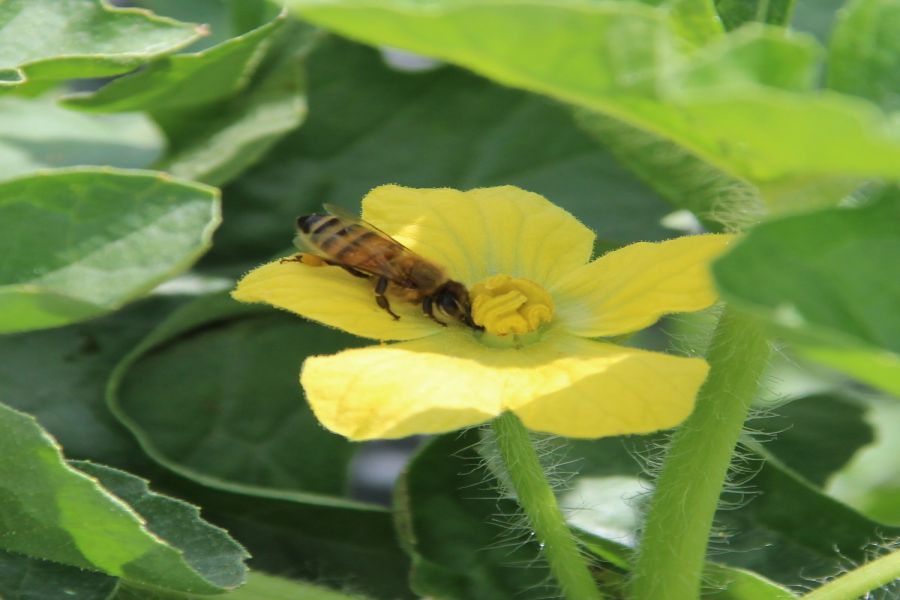Pollination plays a vital role in the growth and development of watermelon, and there are some fascinating facts about how it works. Here are a few key facts you might not know:
Watermelon Flowers Are Unisex :
Watermelon plants have two types of flowers: male and female. The male flowers produce pollen, while the female flowers are where the fruit will form after successful pollination.
Pollination Requires Insects :
Bees, butterflies, and other insects are the primary pollinators for watermelon plants. They transfer pollen from male flowers to female flowers as they collect nectar.
Male Flowers Appear First :
Male flowers typically bloom before the female flowers. This gives the pollinators a chance to collect pollen early in the growing season.
Timing Matters :
Watermelon flowers bloom for only one day, so the timing of pollination is critical. If the female flowers aren’t pollinated within this short window, they won’t produce fruit.
Poor Pollination = Small or No Fruit :
If watermelon plants don’t receive enough pollen, the fruit may not develop properly. In some cases, poorly pollinated female flowers will shrivel and drop off without forming fruit.
Watermelon Needs Cross-Pollination :
Although watermelons can self-pollinate, cross-pollination (pollen from a different watermelon plant) typically results in better fruit production. So, having more than one watermelon plant increases the chances of successful pollination.
